‘From surviving to thriving.’ Spokane center could shape Tri-Cities homeless solutions
It’s not just an apartment, it’s a chance to get the help needed to build a better life. That’s the goal of Gonzaga Family Haven in Spokane.
The supportive housing community is a family-centered version of a recently opened project in Pasco, and offers a glimpse into opportunities the Tri-Cities could eventually have.
The basic functions of the community are the same — much needed low-cost housing for people experiencing homelessness, and the support services needed to ensure they don’t fall back into being unsheltered.
Both are run by the nonprofit Catholic Charities of Eastern Washington, which is affiliated with the church, but not part of it. Branches Catholic Charities runs supportive housing, community support and other projects in cities in all 50 states.
The Spokane community has 73 units ranging in size from 1-bedrooms to 3-bedrooms. Like Bishop Skylstad Commons in Pasco, community members commit to paying a percentage of their income, typically 30%, as they work toward permanent housing, with no time limit set for how long it takes to get there.
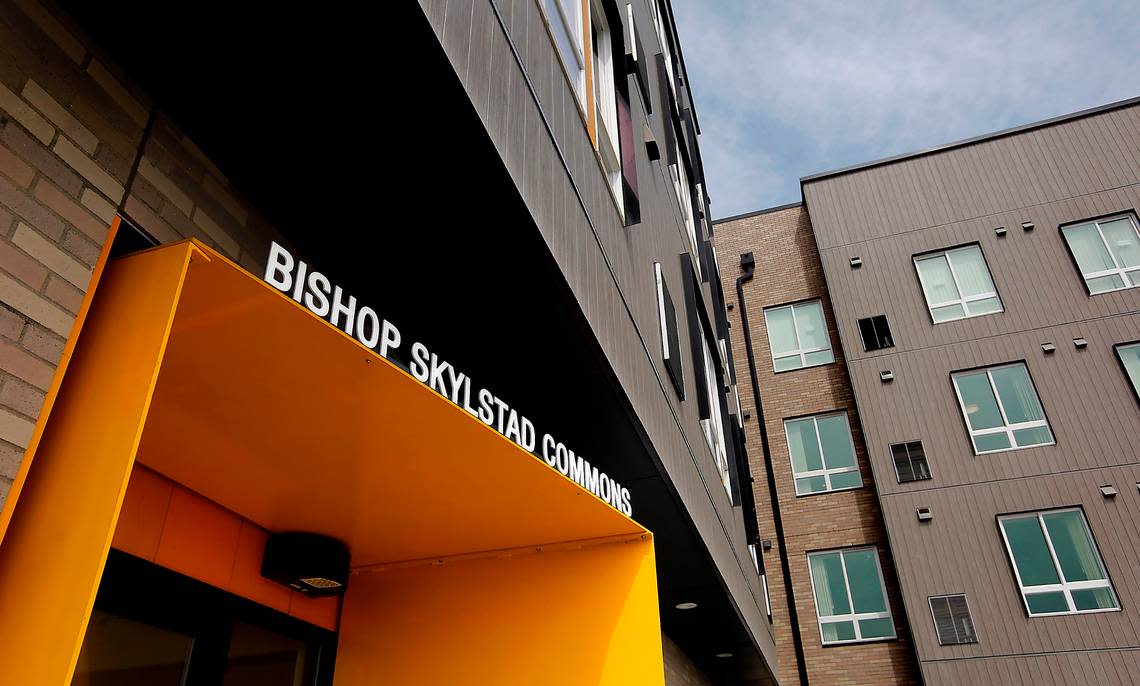
But Gonzaga Haven takes it a step further by offering wraparound services for the entire family.
Stability and support
The Tri-Cities really doesn’t have anything like Gonzaga Family Haven. The closest comparable facility is the Union Gospel Mission, which runs a small women’s shelter in Pasco that allows children. But because the facility is aging and small, they’re cramped and families don’t get privacy.
They’re currently fundraising to replace the more than 100-year-old building with one that will allow private rooms, but often families have to make the hard choice of not staying together because men are at a separate shelter. That can lead to families leaving before they’re ready in order to be together or to have space to call their own.
Gonzaga Haven’s recently opened sister facility in Pasco, Bishop Skylstad Commons, is aimed at helping lift single adults out of homelessness.
The value of stability for families cannot be overemphasized.
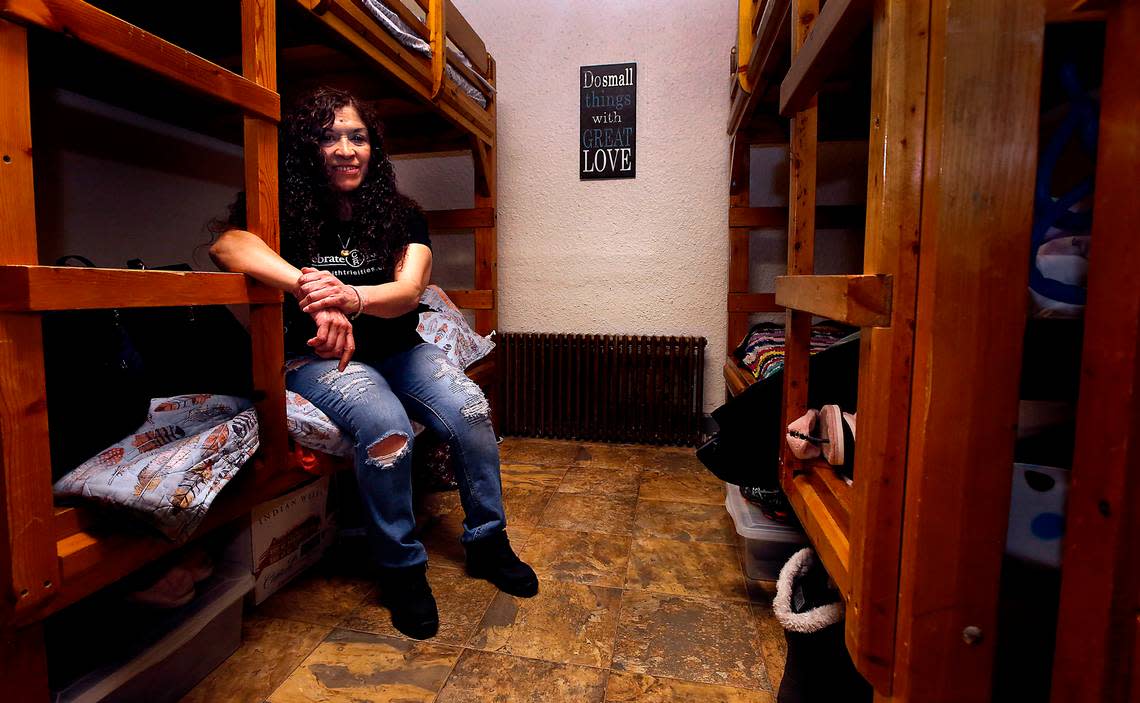
Families having a safe place to lay their heads helps parents focus on the barriers to long-term stability, Director of Community Peggy Haun-McEwen told the Herald during a recent visit to Gonzaga Family Haven.
She said it can take time for families to acclimate and become comfortable asking for help. McEwen said the first obstacle they have to overcome is building a sense of safety.
“I think the concept of trauma-informed care needs to be better understood,” she said.
“My very first ‘a-ha!’ moment was after we moved in, we had about five families that moved in the very first day. The second day I came back and one of the moms I ran into said, ‘That’s the first time I’ve slept through the night in three years.’”
McEwen said she was taken aback, and asked the mother why.
“She said, ‘Well because we’ve been in a shelter. I couldn’t sleep soundly knowing my kids were not necessarily safe,’” McEwen said. “Safety is huge and until you have safety, nothing else is going to matter.”
Once safety is established trust can be built, and the results have surprised even the caseworkers.
For example, one parent was so happy with the tutoring services being offered by Gonzaga Prep students that she decided to reach out for help and is now working toward her GED degree.
“It was kind of an unexpected part of our tutoring,” McEwen said. “That’s a game-changer for that whole family if she can navigate that.”
Other services include a full Head Start classroom, staffed by teachers and early childhood education students from Spokane Community College. The children in the community also are eligible to earn scholarships for Gonzaga Prep, which is next to the community, and Gonzaga University, just a few blocks away.
“The Head Start is the game changer. Daycare is always going to be that piece that’s a roadblock,” McEwen said. “It has allowed some of our parents to now go back to work or access some of the services they need to in the daytime.”
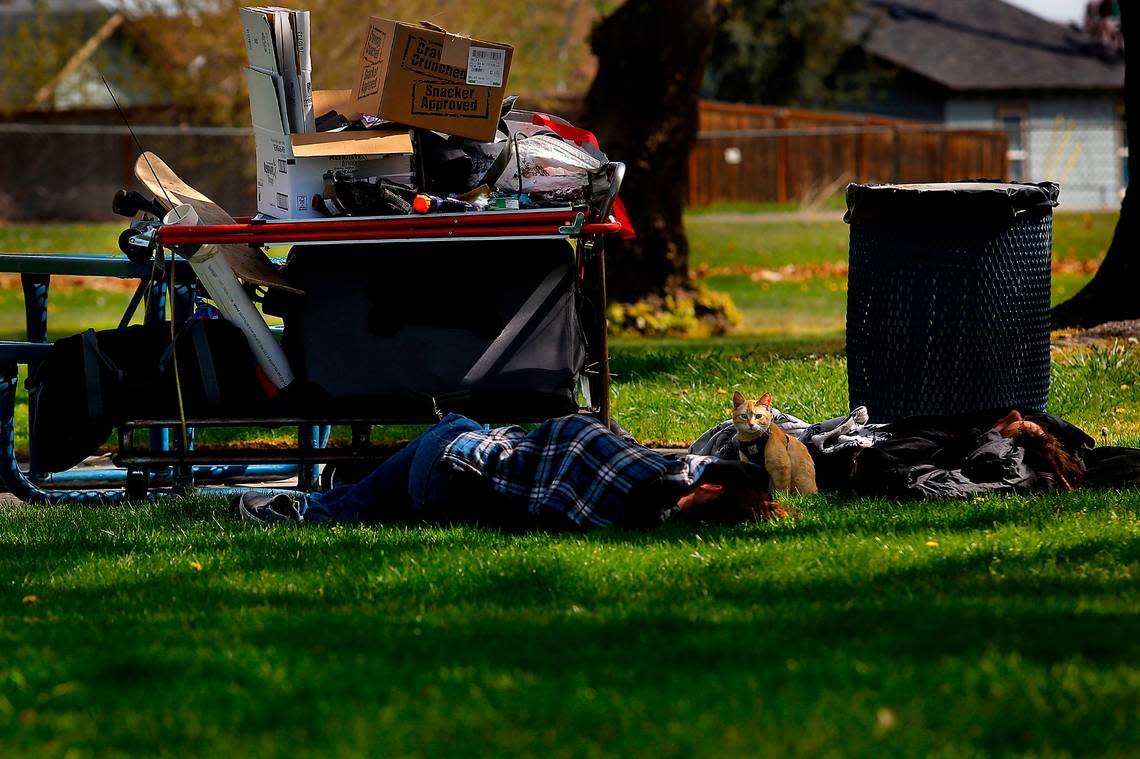
They also have a behavioral health center with caseworkers assisting in areas such as mental health, peer support, employment specialists and a homelessness management intake office on site.
There is a community center with a community kitchen for events and holidays, after-school tutoring, a food pantry and a library kiosk being installed soon.
The community also has a large park and splash pad, as well as a community garden that families can participate in.
Building success
Success looks different for every family, that’s why Gonzaga Haven focuses on helping families define their own version and then reach it.
“I like to say we’re watching them slowly moving from surviving to thriving,” McEwen said. “That’s a beautiful thing because they’ve been in survival mode for so long, and it takes them a while to trust, to see, ‘OK, I’ve got this part of my life in place, what do I need to do next?’”
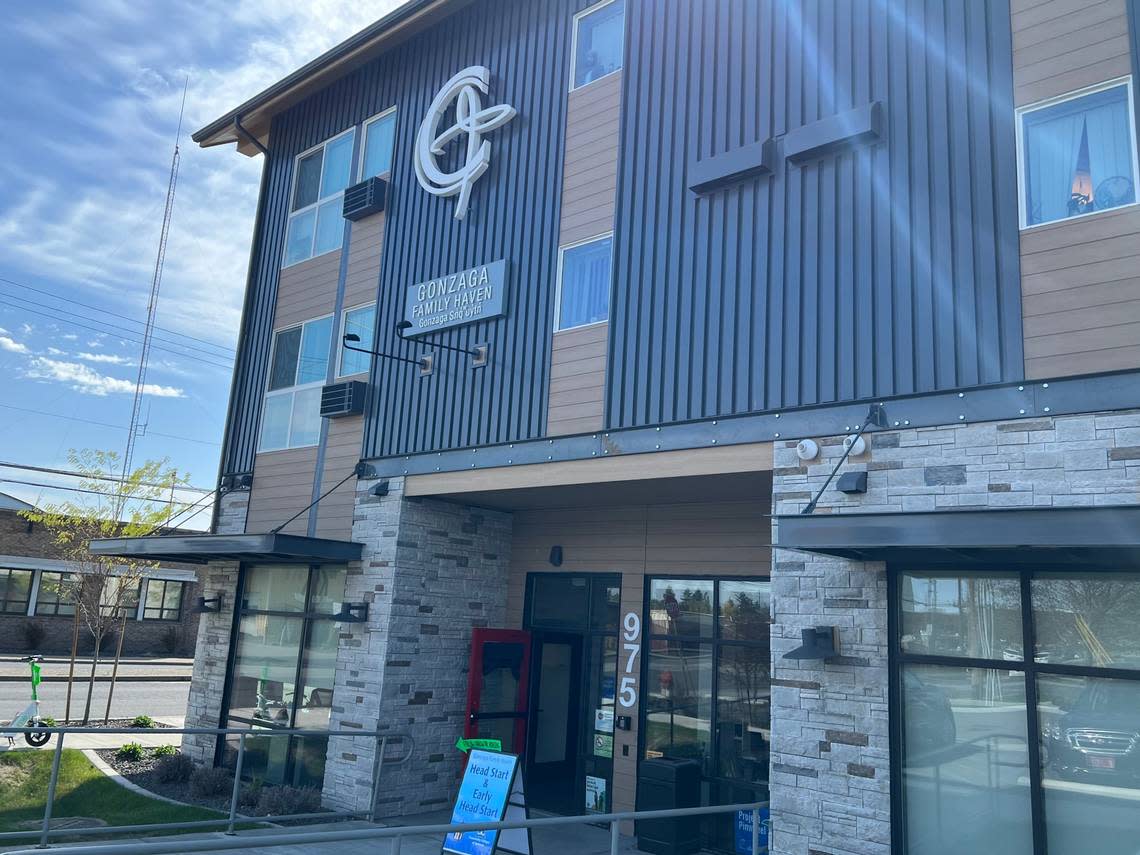
She said the key is time and patience.
“When they come in in survival mode, every time you knock on the door, they assume you’re telling them to pack up. So you really have to build slow. Be slow and very intentional about letting them get into their norm.”
Success for one family might just be a roof over their heads, for another it could be making sure the kids get to school every day or getting to a place where parents can work.
At the end of the day, their job is to show families they can be successful, and then help them reach their goals, Care Coordinator Sheena Kimbal told the Herald.
“I think it’s not what success looks like for us. It’s what success looks like for them,” Kimbal said. “In their eyes success for them could be keeping a roof over their children’s head and having the ability to be a family, but I think success is for them (to define), not for us.”
Being the bridge
The next step is making sure the wraparound services they offer are working for families. That means building partnerships with not only the tutors, but also the schools and classrooms the children are in during the day. They work to ensure that once kids and parents are comfortable, they’re able to start articulating their needs.
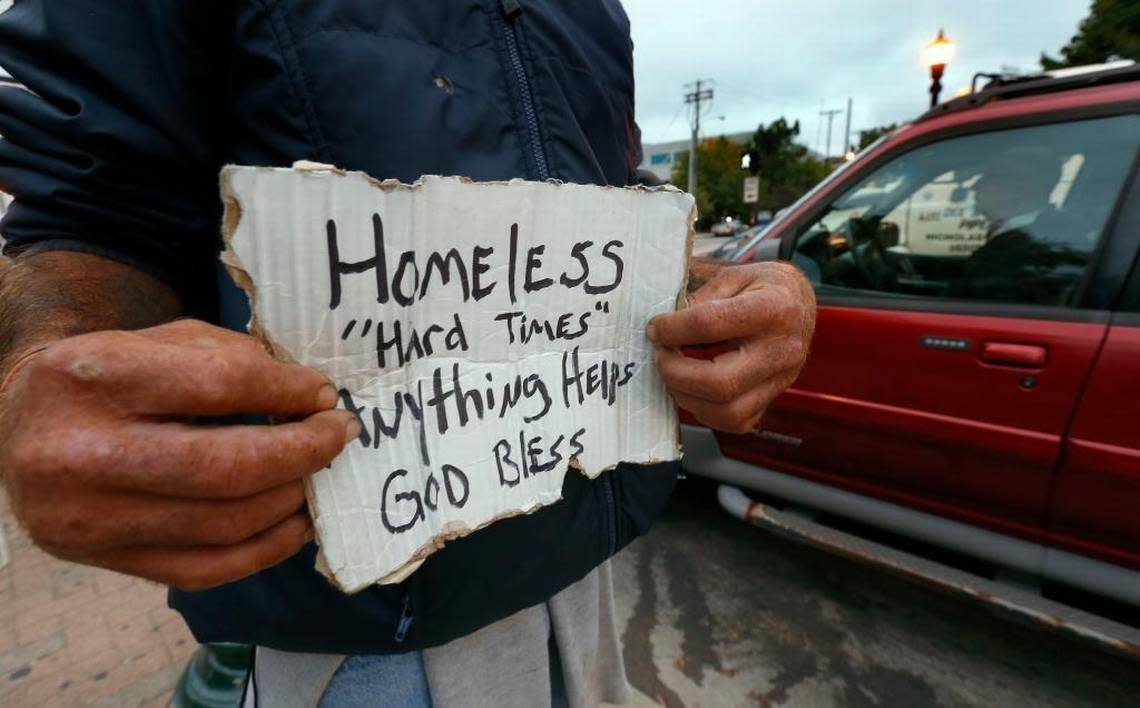
When it comes to generational poverty, there are so many factors that can set a child down a difficult path to correct if not caught early enough. For example, research shows that if a child is behind on reading by the end of third grade, their risk of falling behind or not graduating increases significantly.
And when children experiencing trauma act out, they are at greater risk of being suspend, expelled or becoming involved in the criminal justice system.
“Most of our kids go to the same grade school so we’re on a first name basis with the teachers and principals, and they share with us. It’s about breaking those patterns as early as possible,” McEwen said. “We have people here who can advocate for parents in the community, so they can come to us because sometimes they just don’t speak that language and we can be a bridge.”
For the team at Gonzaga Family Haven, their mission is intervening on behalf of a generation of kids who haven’t had an easy early life, and ensuring they don’t get left behind.
Kimbal said that means bringing in role models, creating access to services, and generally expanding what sustainable housing means.
“We tag team with the parents and adults because we want to break that cycle of intergenerational poverty,” she said. “We’re peeling those layers back until we get to that bottom root of what they need to work on, so we can build them back up.”
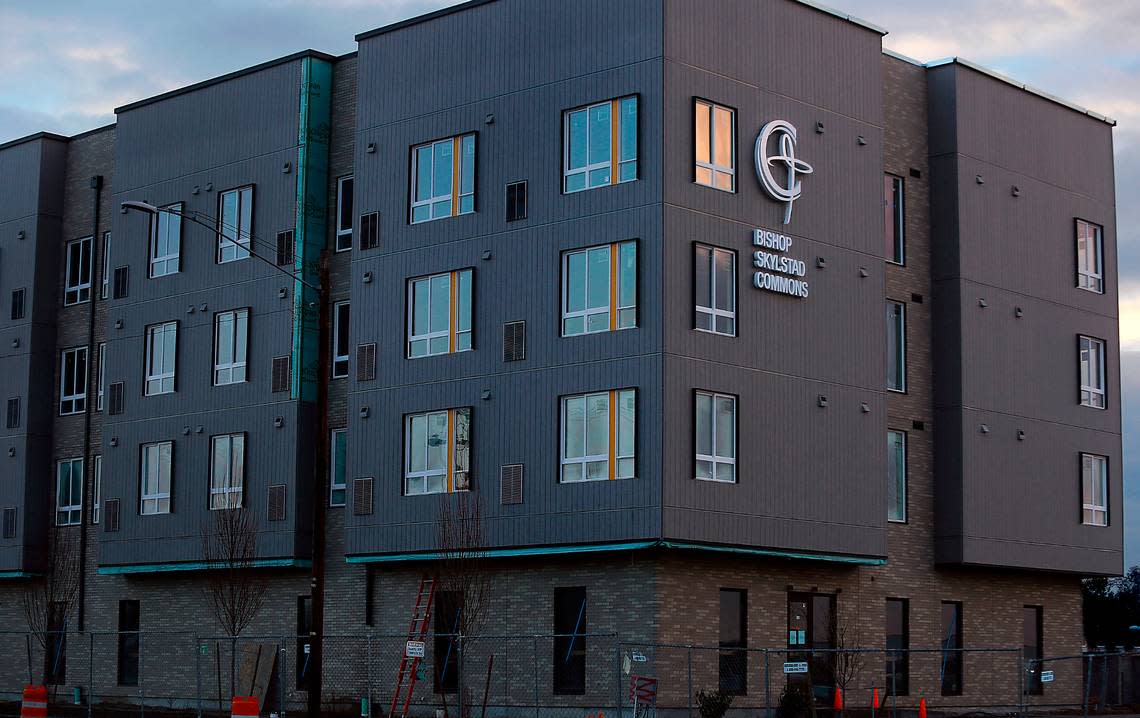
Building opportunity
Kelly Keenan, senior vice president for advancement and impact, said they’re in the business of building families.
He said a supportive housing project like Gonzaga Haven is the combination of safe housing, robust services and connectivity. And by bringing those three things together in one place, it creates activators for positive change that allows people to move forward in their life.
“It’s capacity building for the entire family,” Keenan said. “The children have a ton of support on site, it’s enriched, but even the parents they have the support to even consider what their goals are for the short term and the long term, and then start building it.”
“We know that everyone needs that breathing room to figure out what they want for their own plan, for their life and their family’s life, and the setup here is very intentionally created to give people that chance.”
When Gonzaga Family Haven opened at the end of 2021, the community was a new initiative, and they weren’t sure exactly how things would shake out. But today, it’s worked so well that Catholic Charities is using it as a model to partner with Catholic high schools and universities across the country to replicate the community in their own cities.
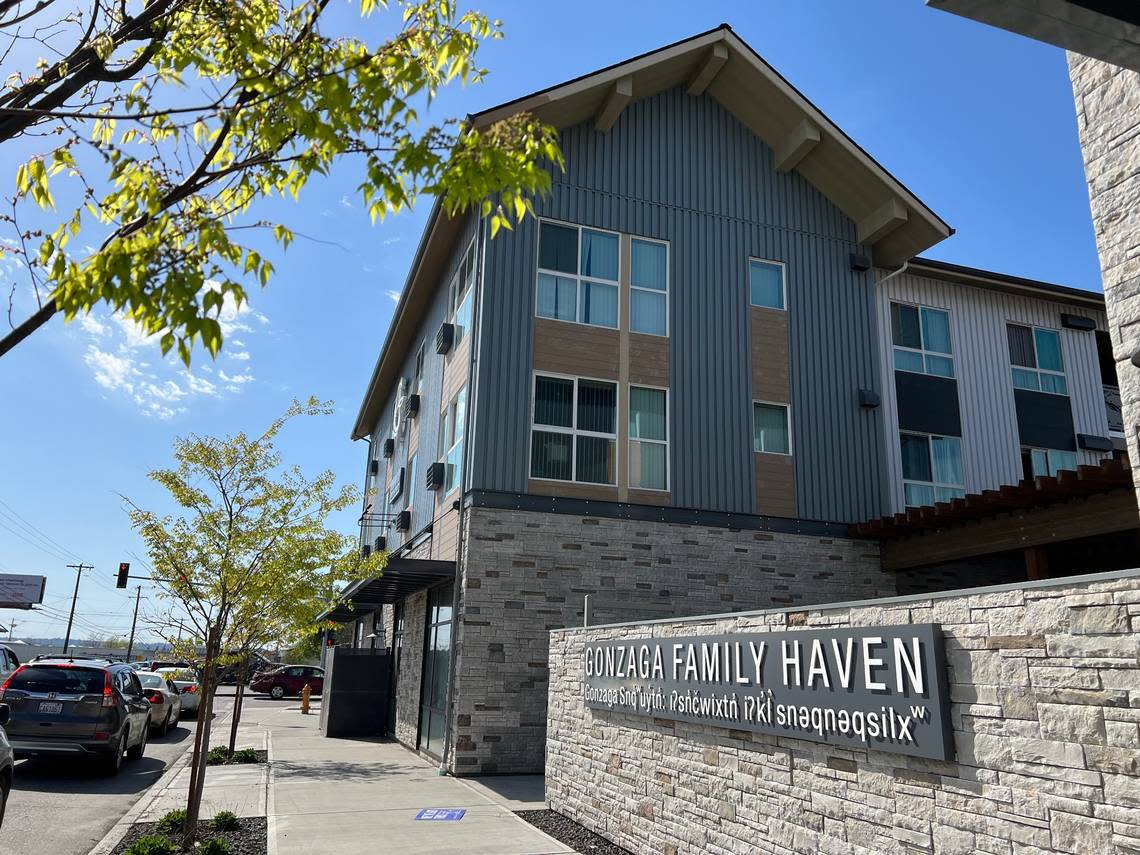
Keenan said the project has been an opportunity for the community to see what’s possible when entities come together around the common goal of ending family homelessness.
“That’s what’s happening here every single day,” he said. “And yes, it’s intervening in what we know can be generational cycles in housing and poverty, and stopping that to ensure people have a platform to point their lives in a positive direction and continuously move toward healthier and more stable lives.”
Keenan said this is a type of supportive housing they can build in any community, through partnerships with existing organizations like Catholic high schools or universities.
With several Catholic schools in the area, it’s possible Tri-Cities can someday have a Gonzaga Family Haven of their own.
“I think projects like this should be feasible for almost any community that wants to be serious about ending family homelessness and helping families stay together and move toward thriving.”
